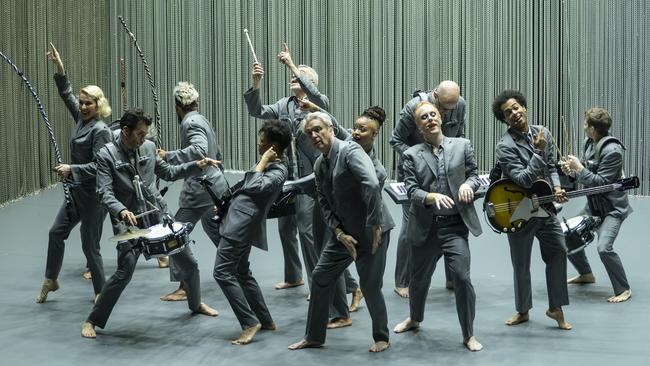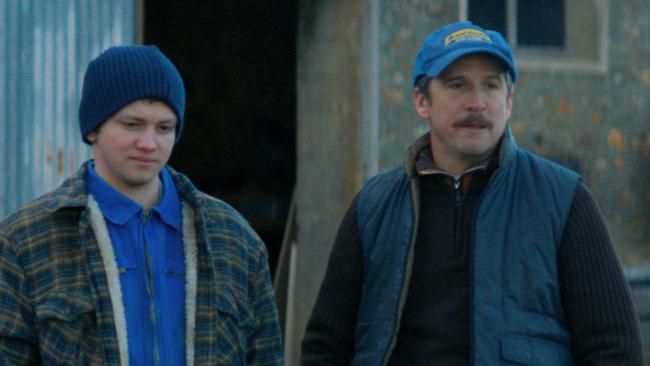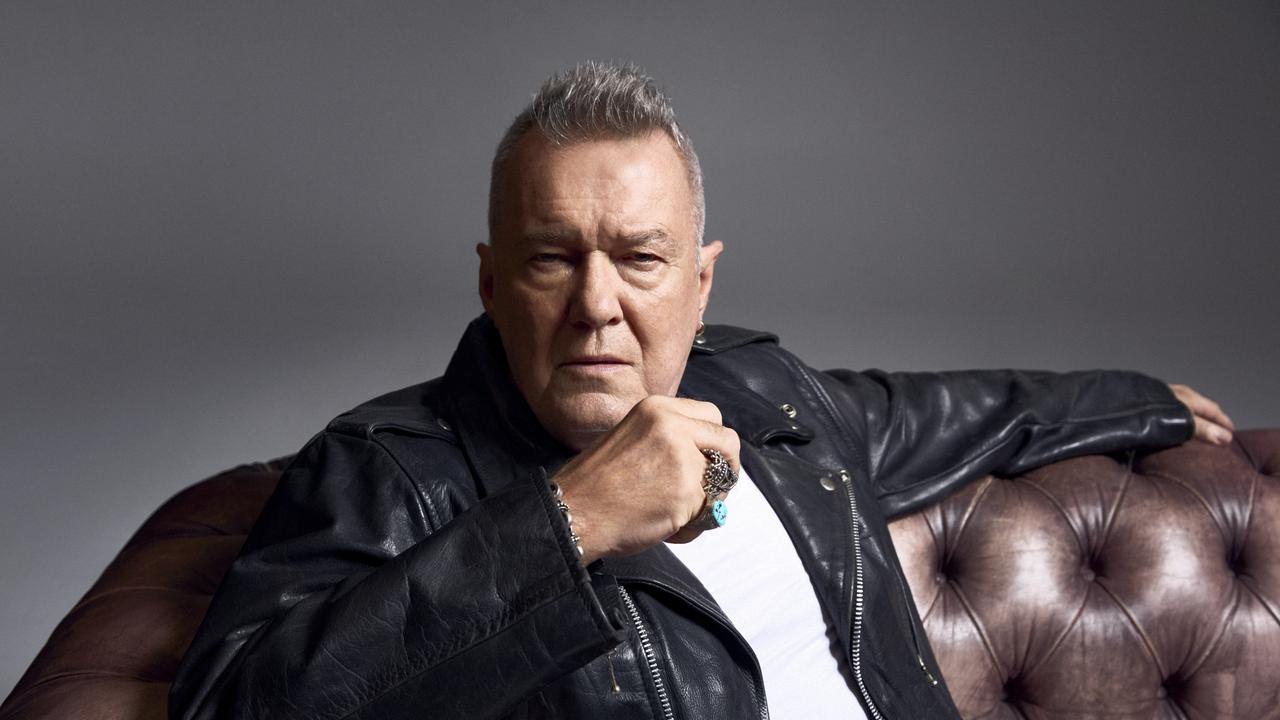
“Meeting people is hard. I know, I know, we have to do it.”
When it comes to audience interaction, David Byrne is no stage-diving Iggy Pop. It’s funny, perhaps deliberately so, that when finally he does walk through the audience in the Spike Lee-directed concert movie American Utopia, he’s singing one of the hits from his time as frontman of American new wave band Talking Heads: Road to Nowhere.
That detachment from other people is characteristic of Byrne’s life and work. Former bandmates have noted his emotional distance. In his journals he has described himself as “borderline Asperger’s”. It is from this personality that a unique artistry has emerged.
Byrne, now 68, accepts all of this and he brings it to the stage. At one point he tells the audience he knows he needs to change. American Utopia is not an ironic message — unlike, say, the Talking Heads song Don’t Worry About the Government, which is featured — but an expression of hope for the future.
This 125-minute documentary is a live recording of a concert Byrne and his 11 supporting musicians did on Broadway last year. They performed songs from Byrne’s 2018 studio album, American Utopia, but also classics from his 16 years with Talking Heads, which disbanded in 1991.
It opens with Byrne, in his light grey suit and bare feet, sitting alone at a table, fondling a model of the human brain. The band members walk on stage, identically attired, and launch into one of the American Utopia songs, Here. It’s a fitting start, with its focus on the need for our brains to connect in our own heads and interconnect with others.
Soon after Byrne talks about the lead single from that album, Everybody’s Coming to My House. He admits that in his version of the song, the one he wrote, his main feeling was wondering when the people who came to his house would leave. Yet when he took the song to a school choir in Detroit, the kids saw it differently. Their rendition was all about welcoming and inclusion.
Byrne says this had a profound effect on him. Even so, I did wonder if the next song would be the Talking Heads one everyone knows, Psycho Killer. I will leave that for viewers to find out.
Lee turns this concert movie into much more than a recording of musicians on stage. He films the concert from different vantage points — including from behind and above the stage — and makes effective use of close-ups.
Two songs where this connection between music and film elevate both art forms are the Talking Heads hit Slippery People, with close-ups and off-set shots highlighting Byrne in a not-on-the-album riff, and a cover version of Hell You Talmbout, Janelle Monae’s protest song about people who have died at the hands of police. Here Lee incorporates photographs of the victims and their families as Byrne sings “Say his name … say her name”.
Byrne and his bandmates are not tethered to drum sets, keyboards or amplifiers. They carry wirelessly amplified instruments and stroll the stage at will, a “frictionless freedom”, as Byrne puts it, that allows choreographer Annie-B Parsons to turn a gig into a film.
The camerawork is by Ellen Kuras, who worked with Lee on the 1999 serial killer film Summer of Sam. Her CV includes the Bob Dylan documentary No Direction Home (2005), directed by Martin Scorsese, and the concert movies Lou Reed’s Berlin (2008), directed by Julian Schnabel, and Neil Young: Heart of Gold (2006), directed by Jonathan Demme.
It was Demme and Talking Heads who made one of the best concert movies to date: Stop Making Sense (1984), well-known for numerous reasons, including Byrne hiding himself in a huge suit. In a sense, American Utopia shows how much has changed in that time. Byrne wears suits that fit, for starters, and his approach is more minimalist yet more open.
To have these stages in his life recorded by directors such as Demme and Lee goes to Byrne’s remarkable place in the artistic imagination. One of Talking Heads’ first hits was Once in a Lifetime, with its refrain “Same as it ever was”. Not always true, as Byrne has come to learn.
Fans of Talking Heads will want to see this film. I’m one of them, so I may be biased, but I think it has a lot to offer anyone interested in the weird world of making music.
-
In the Name of the Land (M)
National release
★★★★
The French language film In the Name of the Land shares common ground with the magnificent Australian drama Rams, in cinemas now. Each is set in the rural sector and involves agricultural downturn, estranged kin and resistance to government regulations (in this case the EU).
If you have seen Rams and loved it, as I did (4½ stars from me on October 29), then this is a natural follow-up. It is similar, but different in important ways. You will not be disappointed.
This is the feature debut of French photojournalist Edouard Bergeon, who co-wrote the script. Bergeon grew up on a farm near Poitiers in western France and this film is deeply personal. He is the teenage son we see on screen.
If you don’t know the real story behind the cinematic story, as I didn’t, I suggest you keep it that way. Watching it unfold across the course of this 110-minute drama is absorbing.
It has the power to raise your spirits, and to sink them. There are five main actors and each is outstanding.
We open with a bit of backstory. It’s 1979 and Pierre Jarjeau (Guillaume Canet in an Oscar-level performance) is 25 and has returned home from a stint working on huge ranches in the US.

He’s Marlboro Man handsome (cinematographer Eric Dumont has a bit of fun here). He meets his lover, Claire (Veerle Baetens), and it’s clear they haven’t seen each other for a while.
The song in the background is American: Woody Guthrie singing Worried Man Blues. Like all the music in this movie, it is perfectly placed.
Pierre isn’t worried in 1979, but there’s a lot to come as he takes over the farm run by his stoic father Jacques (Rufus, best-known as the father in the 2001 French film Amelie). This is the filial estrangement at the centre of the story as we move forward to 1996.
Pierre and Claire are married, have two teenage kids, Thomas (Anthony Bajon) and Emma (Yona Kervern), and are running the farm, growing wheat and raising goats.
The old man, who ran sheep, is still around and his son has to pay him leasehold. Claire looks after the books and, as she points out, she and her husband are “flat broke”.
Pierre, however, is determined to go further into debt and modernise the farm, to bring it from his father’s agrarian time to the entrepreneurial-industrial era.
He meets the smooth representative of poultry conglomerate ChickenStar (a humorous moment) and decides to expand into chooks, 20,000 of them. His father holds up one of the bedraggled fowls, tells him he farms “badly” and raises animals in which he can take no pride.
As is the case in Rams, something terrible happens and this takes both the farm and Pierre to the edge of bankruptcy. Literally for the farm, emotionally for him.
It is from here, about halfway through, that In the Name of the Land distinguishes itself as an important film in its own right. It is about real issues facing farmers today, in France, in Australia, everywhere.
Indeed it feels like the French looked at Rams — the 2015 Icelandic original on which the Australian remake is based — and said: we meet your Nordic noir and we raise the stakes.
The second half of the film goes to dark places, made all the darker by the fact we know they are authentic, for the director’s family and for farmers today.
This film was a box-office hit in France. The themes it explores are as urgent and as pressing in Australia as they are there, and it deserves a wide audience, especially among city dwellers such as this reviewer.




David Byrne’s American Utopia (M)
National release
★★★½